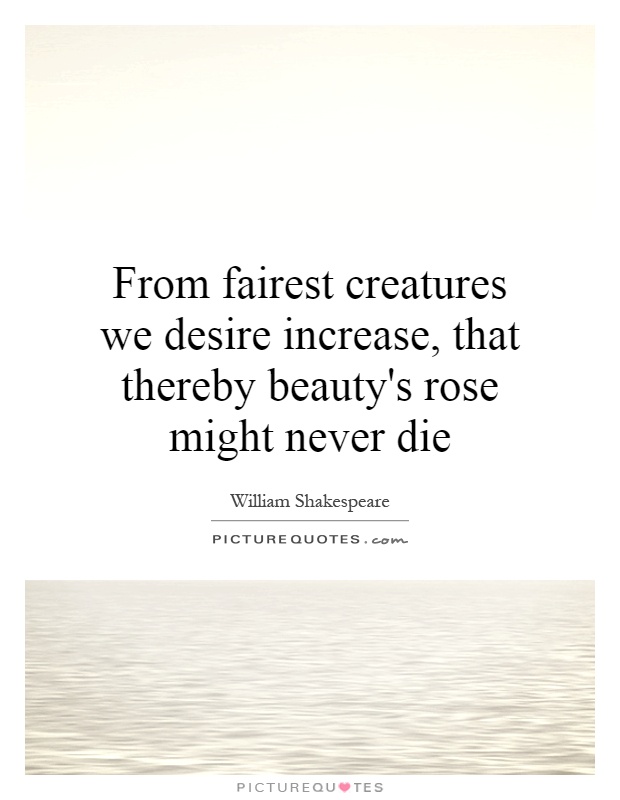From fairest creatures we desire increase, that thereby beauty's rose might never die

From fairest creatures we desire increase, that thereby beauty's rose might never die
The opening lines of Shakespeare's Sonnet 1, "From fairest creatures we desire increase, that thereby beauty's rose might never die," encapsulate the timeless theme of beauty and its fleeting nature. In this sonnet, Shakespeare explores the idea that the desire for procreation is driven by the human instinct to preserve beauty and ensure its continuation through future generations.The phrase "fairest creatures" refers to those who possess physical beauty, which has long been a source of fascination and admiration for humanity. Shakespeare suggests that this beauty is not only a source of pleasure in the present, but also a legacy that can be passed down through offspring. By procreating, individuals can ensure that their beauty is not lost but rather perpetuated in their descendants.
The metaphor of "beauty's rose" further emphasizes the fragility and transience of beauty. Like a rose, beauty is delicate and ephemeral, subject to the ravages of time and mortality. However, through the act of procreation, beauty can be preserved and renewed, ensuring that it never truly dies but continues to bloom in future generations.
Shakespeare's exploration of beauty and procreation in Sonnet 1 reflects the broader themes of love, mortality, and the passage of time that pervade his work. The sonnet serves as a meditation on the impermanence of beauty and the human desire to transcend this impermanence through the creation of new life.
Ultimately, Shakespeare's Sonnet 1 reminds us of the power of beauty to inspire and captivate us, even as we are aware of its fleeting nature. Through the act of procreation, we seek to defy the inevitability of time and preserve the beauty that we hold dear. In this way, Shakespeare's words continue to resonate with readers centuries after they were written, speaking to the universal truths of human experience.












 Friendship Quotes
Friendship Quotes Love Quotes
Love Quotes Life Quotes
Life Quotes Funny Quotes
Funny Quotes Motivational Quotes
Motivational Quotes Inspirational Quotes
Inspirational Quotes